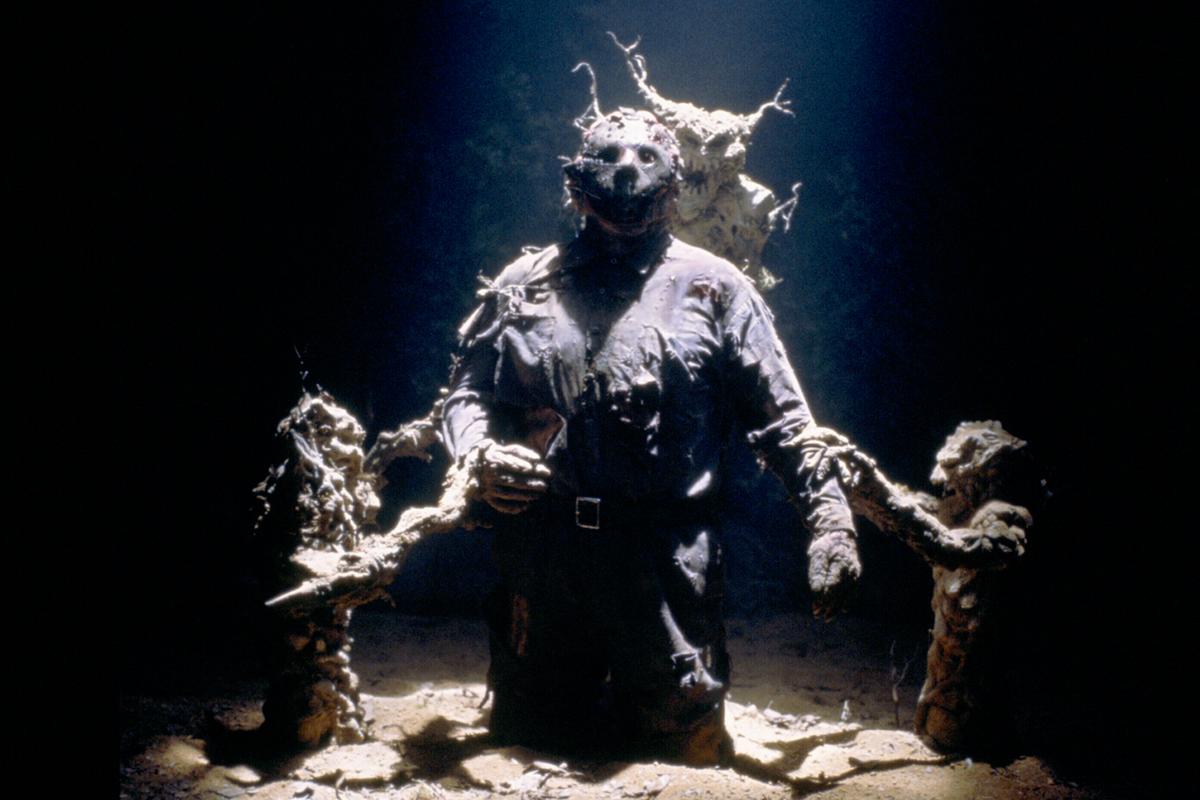Friday the 13th fans who thought the series hit rock bottom with 1989’s Jason Takes Manhattan were dragged to even lower depths four years later with Jason Goes to Hell: The Final Friday.
In a move that was as foolish as it was bold, first-time director Adam Marcus essentially attempted to make a Friday the 13th movie without Jason Voorhees. The series’ famously unstoppable hockey mask-wearing murderer is blown to bits by a large SWAT team seven minutes into the movie, and doesn’t reappear in his original form until five minutes before the credits roll.
In between, Jason’s evil spirit possesses a series of ordinary citizens, using their bodies to rack up more murders while seeking a Voorhees family member so he can be “truly reborn.” It’s a concept that was done much better six years earlier in The Hidden, made worse here by a non-stop series of jarring tone shifts, hammy performances and a needlessly confusing plot featuring bloodlines and magic daggers.
The movie’s trailer highlights the return of Sean S. Cunningham, producer of 1980’s original Friday the 13th: “The creator of the first Friday… returns to bring you the last.” In reality, Cunningham helped get the rights for the Jason Voorhees character moved from Paramount to New Line, home of the A Nightmare on Elm Street series, with the goal of having Jason battle Freddy Krueger in this movie.
Watch the ‘Jason Goes to Hell: The Final Friday” Trailer
That idea got delayed when Nightmare on Elm Street‘s original mastermind, Wes Craven, decided to return to that franchise with 1994’s Wes Craven’s New Nightmare. Cunningham decided he might as well try to rekindle Jason’s movie career while he waited for his dream crossover project, but came to regret giving Marcus too much leeway.
“It was a disaster. …For me, it is way past an embarrassment,” the producer recalled in the book Crystal Lake Memories. “The body-morphing plot – it was a dismal idea. …Adam came to me and said, ‘the last thing fans want to see is Jason going through Camp Crystal Lake chopping up teenagers again.’ Of course, it was the only thing they wanted to see, and Adam delivered this movie that was so not good.”
Read More: How Gene Siskel Tried to Sabotage ‘Friday the 13th’
After an initial test screening made it clear the audience wanted more of the franchise’s trademark elements – namely, naked young people having sex then getting murdered on a campground – a new scene checking all those boxes was filmed. “We were given our marching orders,” Marcus admitted. “Personally, I think the girl split up the middle is the best death in any Friday the 13th, and it wasn’t even originally in the movie.”
Editor David Handman isn’t as pleased with the end result: “Frankly, I don’t think I succeeded in editing that sequence. It still looks like a porno movie to me.”
“I’m very proud of my Jason, I really am,” Marcus insists in Crystal Lake Memories. “We did something different. I know we got hammered by many of the critics, but we actually got some nice notices too. And we did stuff in our movie that was self-referential, that was cheeky. We did it years before (1996’s) Scream but we never get any credit for that.”
Although Cunningham was unable to get his Jason Vs. Freddy crossover this time out, the final seconds of Jason Goes to Hell feature a tantalizing tease, as Krueger’s razor-gloved hand can be seen dragging Jason’s hockey mask down to hell.
Unfortunately for those plans, Jason Goes to Hell bombed at the box office with a gross of $16 million, barely beating out the series-low performance of Jason Takes Manhattan. It would be 10 more years – and one amazingly corny detour into space for Jason – before Cunningham finally achieved his goal of bringing Jason Vs. Freddy to the screen in 2004.
Watch ‘Jason Goes to Hell”s Surprise Ending
20 Meanest ’80s Movie Bullies
In no era in American movies was there a more fruitful and entertaining trade in that great cinematic tradition, the ’80s big screen bully.
Gallery Credit: Dennis Perkins



